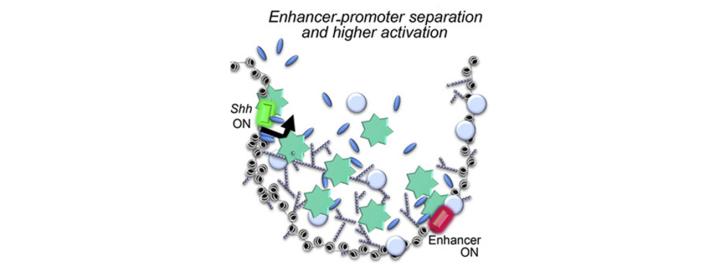Mechanisms of Transcriptional Activation by Hormone-Dependent Enhancers
Supervisors: Professor Wendy Bickmore & Dr Luciana Gomez-Acuna

How enhancers exert their action on their target genes over long genomic distances is not fully understood. Our current understanding of how enhancers function does not necessarily involve very close proximity of enhancer and promoter, but rather their engagement through transcriptional hubs. We investigate the molecular mechanisms involved in enhancer-promoter communication with special interest in those leading to local chromatin decompaction, by deploying and developing cutting-edge techniques in advanced imaging, synthetic biology, molecular and cell biology. Using hormone-dependent enhancers in cancer cell line models, this project aims to uncover whether DNA damage, linked to increased transcription and the concomitant DNA-damage response, contribute to enhancer-promoter chromatin decompaction and proper transcriptional activation. This could point to an unexpected interplay between transcription and DNA-damage.
Benabdallah NS, Williamson I, Illingworth RS, Grimes GR, Therizols P, Bickmore WA. (2019). Decreased Enhancer-Promoter Proximity Accompanying Enhancer Activation. Molecular Cell 76: 473-484.e7.
Gómez Acuña, LI, Flyamer I, Boyle S, Friman E, Bickmore WA. (2023). Transcription decouples estrogen-dependent changes in enhancer-promoter contact frequencies and spatial proximity. BioRxiv, 2023.03.29.534720.


